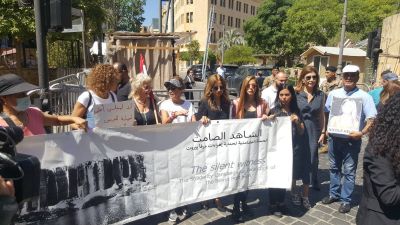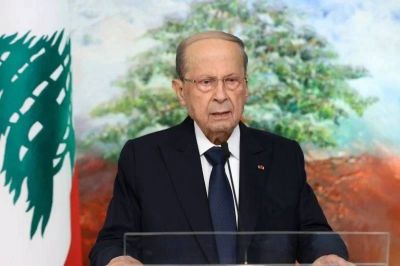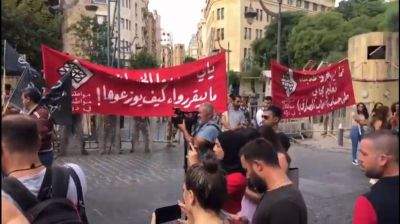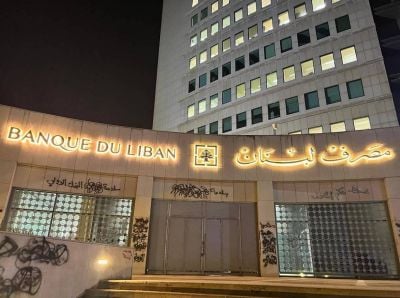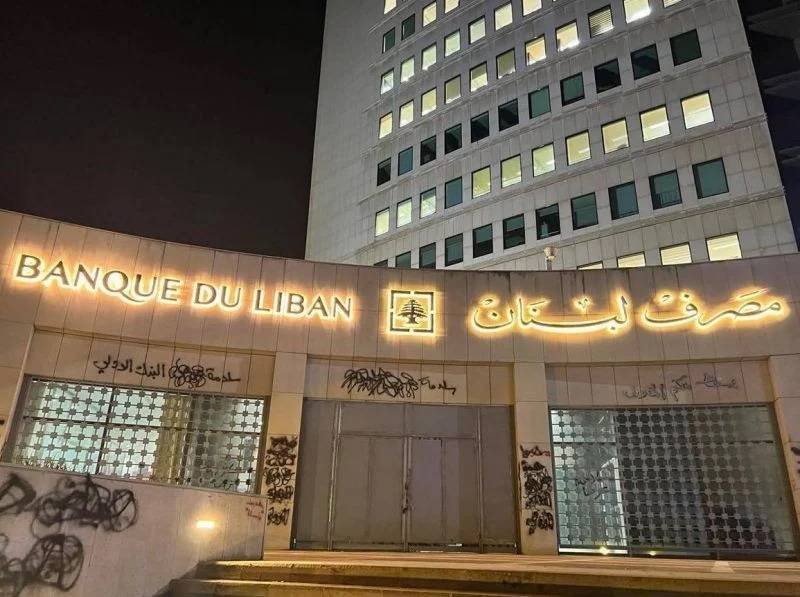
The Banque du Liban headquarters in Beirut. (L'Orient-Le Jour/Layal Dagher)
It is anything but a surprise, but at least it has the merit of being official: In a letter sent to the Lebanese authorities and leaked on Thursday, the International Monetary Fund said that the law on bank secrecy passed by the Parliament at the end of July was a positive step to bring Lebanon closer to “international standards” and “good practices,” but that important gaps should be corrected.
The text is still not law, as President Michel Aoun sent it back to Parliament on Wednesday for a second reading.
According to government sources who spoke with L’Orient-Le Jour in the weeks following late July’s Parliament vote, the IMF indeed had “comments to make” on the version finally adopted by Parliament.
Frederico Lima, an IMF economist in Lebanon, did not respond to L’Orient-Le Jour’s requests for comment by the time of publication.
Preliminary agreement
The bank secrecy law was included as a precondition of the April 7 preliminary agreement with the IMF, which Lebanon must meet in order to receive a $3 billion financial assistance package.
The law would allow certain specifically designated authorities to suspend the effects of the 1956 banking secrecy law in a greater number of cases than those currently provided for. The aim is to strengthen the fight against tax evasion, bring Lebanon closer to international standards in the fight against money laundering and terrorist financing, and fight against corruption.
“What is important for the [IMF] is the possibility of tracing operations and going back to any document that banks and financial institutions are required to keep for a certain period of time,” including those that could “be used to fight against illicit enrichment, explains tax lawyer Karim Daher. He serves as a member of the commission dedicated to the protection of depositors within the Beirut Bar Association.
“In short, the IMF wants the Lebanese state to have the legal means to prosecute and punish those who committed financial offenses before and during the crisis and to recover the misappropriated funds,” Daher adds.
Four problems
The IMF letter that leaked Thursday night was posted on Twitter by former minister and former deputy governor of the Banque du Liban (BDL) Nasser Saidi.
In this missive, the IMF apparently identified four issues with the law passed by Parliament:
• The law does not expressly grant access to “banking information” to BDL, the Banking Control Commission (CCB) and the National Institute for the Guarantee of Deposits (NIGD). Rather, this access is granted only to the judicial authorities, the tax authorities, the Special Investigation Commission (SIC) and the National Commission for the Fight against Corruption.
• Under the law in its current form, banking secrecy may only be lifted in cases of prosecution for financial crimes, without providing for non-contentious administrative procedures, such as routine audits.
• The law should also provide “a mechanism for law enforcement access” to banking information, according to the IMF.
• Finally, the law includes excessively heavy prison sentences to punish those who “breach” banking secrecy, raising concerns that punitive measures are too dissuasive against potential whistleblowers.
Suggestions
In the leaked letter, the IMF also put forward several suggestions, including the establishment of a register of bank accounts to facilitate access to bank information.
In terms of sanctions, the IMF also wants to remove the provisions that require banks to go through the Higher Banking Commission in the process of delivering information.
The Fund also echoed questions over the retroactivity of the text, which does not clearly state that its provisions are binding and prevail over other competing laws already in existence.
Parliament will have to take these considerations into account during its second reading of the text in order to avoid rejection a second time. This is especially salient as the draft law on capital controls — another IMF requirement — seems to have similar shortcomings, according experts who have spoken on the subject.
This article was originally published in French at L’Orient-Le Jour.
